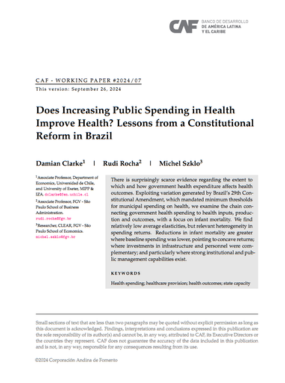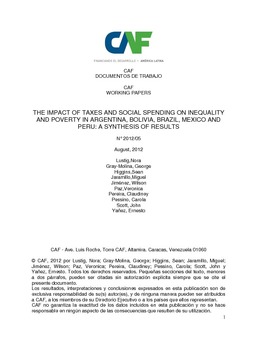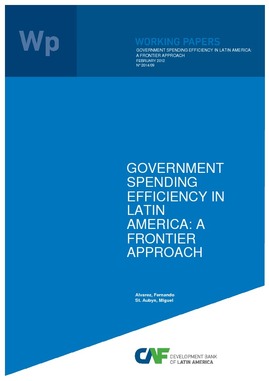Does Increasing Public Spending in Health Improve Health? Lessons from a Constitutional Reform in Brazil
Resumo
There is surprisingly scarce evidence regarding the extent to which and how government health expenditure affects health outcomes. Exploiting variation generated by Brazil’s 29th Constitutional Amendment, which mandated minimum thresholds for municipal spending on health, we examine the chain connecting government health spending to health inputs, production and outcomes, with a focus on infant mortality. We find relatively low average elasticities, but relevant heterogeneity in spending returns. Reductions in infant mortality are greater where baseline spending was lower, pointing to concave returns; where investments in infrastructure and personnel were complementary; and particularly where strong institutional and public management capabilities exist.
Assunto
País / Región
Data
2024-09-26Cite esta publicação
Item que pertence à coleção

Autor
Clarke, DamianRocha, Rudi
Szklo, Michel
Items Relacionados
The impact of taxes and social spending on inequality and poverty in Argentina, Bolivia, Brazil, Mexico and Peru: a synthesis of results
We apply a standard tax and benefit incidence analysis to estimate the impact on inequality and poverty of direct taxes, indirect taxes and subsidies, ...
RED 2025. Chapter 3: What subnational governments spend on and how they spend it
This chapter examines the increase in public spending managed by subnational governments in Latin America. The diversity in per capita spending is ...
Government Spending Efficiency in Latin America: A Frontier Approach
Government spending efficiency in providing education and health is evaluated across countries of the world, with a special emphasis on Latin American ...




